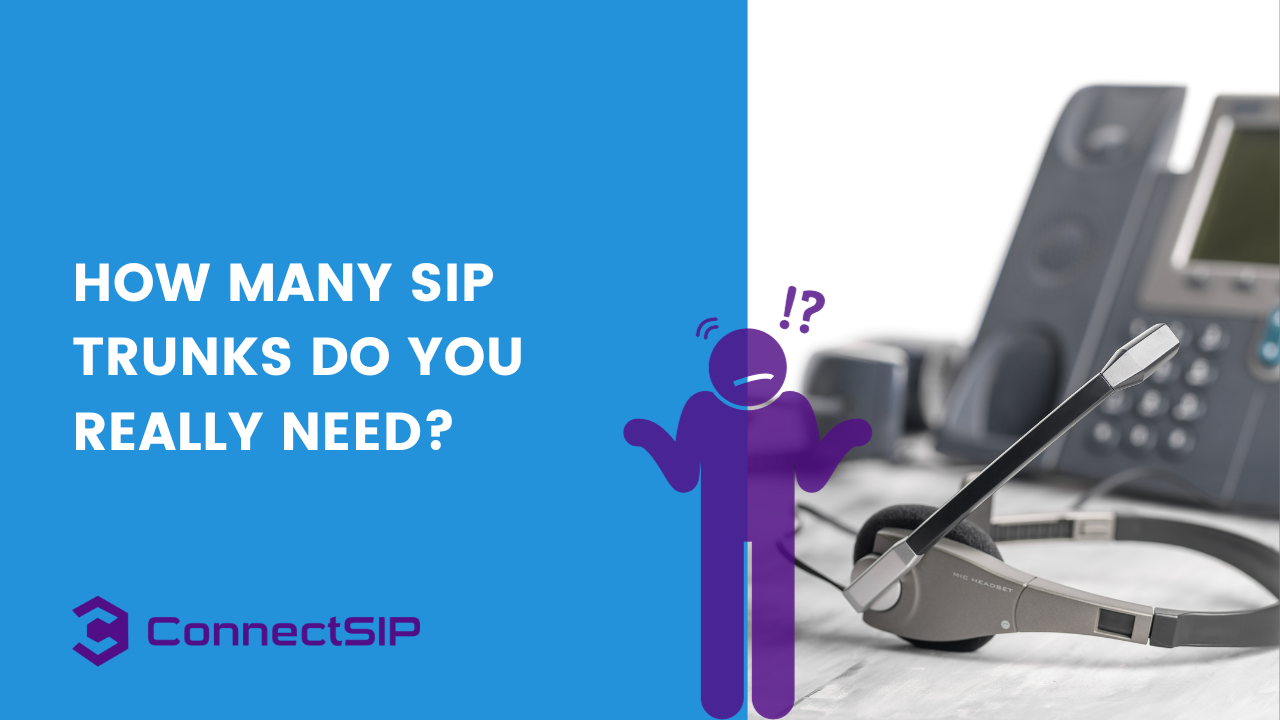Nigeria, globally known as the giant of Africa, is brimming with untapped potential and hidden business opportunities that savvy entrepreneurs can leverage. While the country is widely known for its thriving oil sector, there’s a wealth of lucrative ventures waiting in the shadows.
Imagine diving into a market bursting with youthful energy, a growing middle class, and an increasingly digital landscape. This article will unveil ten hidden lucrative business prospects in Nigeria that you simply can’t afford to overlook.
Quick note: Most of these business ideas are not your regular get-rich-quick schemes and may sound boring and unattractive at first but this is one of the reasons they remain untapped.
Table of Contents
Toggle1. Super-Agent Aggregator for PoS Kiosks

In Nigeria, the Point of Sale (PoS) business has grown exponentially due to the increasing need for financial inclusion and the gap in traditional banking services. Many small-scale entrepreneurs have set up PoS kiosks across the country, offering basic banking services such as withdrawals, deposits, and money transfers.
However, these individual operators often face challenges related to liquidity, security, and management. This is where the concept of a Super-Agent Aggregator comes into play, offering a lucrative business opportunity.
A Super-Agent Aggregator acts as a middleman between the PoS agents and the banks. By pooling resources and providing support services, the aggregator can help individual PoS agents operate more efficiently. For instance, they can offer bulk cash deliveries, reducing the risk of carrying large amounts of money. They can also provide software solutions that integrate with existing banking systems, making transactions smoother and more secure.
The demand for PoS services is not waning anytime soon, as more Nigerians embrace cashless transactions and digital banking. By establishing a Super-Agent Aggregator business, you can tap into this growing market and offer a much-needed service to both PoS agents and their customers. The initial investment may include setting up a IT infrastructure, hiring security personnel, and creating a network of agents. However, the returns can be significant, especially as you scale the business and expand your network across different regions of the country.
Moreover, aggregators can introduce value-added services such as micro-loans, insurance, and bill payments, further diversifying their revenue streams.
2. E-commerce Returns Micro-Hub

The e-commerce sector in Nigeria is booming, driven by a young and tech-savvy population increasingly comfortable with online shopping. However, one major challenge that continues to plague the industry is the efficient handling of returns. Many e-commerce platforms struggle with the logistics of returns, leading to customer dissatisfaction and increased operational costs. This challenge opens up a hidden business opportunity in the form of E-commerce Returns Micro-Hubs.
An e-commerce returns Micro-Hub acts as a localized center for managing product returns. These hubs can be strategically located in urban centers, making it convenient for customers to drop off their returned items.
By centralizing the returns process, these hubs can streamline the reverse logistics, ensuring faster processing times and reducing the burden on the main e-commerce warehouses. This not only improves customer satisfaction but also helps e-commerce platforms manage their inventory more effectively.
Setting up an e-commerce returns hub involves securing a warehouse space, implementing a tracking system, and establishing partnerships with major e-commerce platforms. The hub can offer additional services such as quality checks, repackaging, and refurbishing returned items, adding value to the returned goods. By providing a specialized service, these hubs can charge e-commerce platforms a fee for every returned item processed, creating a steady revenue stream.
3. Plantain-Flour Micro-Mill & Export Broker

Plantain is a staple food in Nigeria, enjoyed by millions in various forms such as roasted, fried, or boiled. However, one of the most versatile and increasingly popular products derived from plantain is plantain flour. This gluten-free alternative to wheat flour is not only consumed locally but also has a growing demand in international markets.
A plantain-flour mill involves setting up a small-scale processing plant where plantains are peeled, dried, and milled into fine flour. This flour can be packaged and sold to local markets or exported to meet the demands of the global gluten-free market. The initial investment includes purchasing milling equipment, securing a steady supply of raw plantains, and adhering to food safety standards. However, the returns can be substantial, especially as you build a reputation for high-quality, organic plantain flour.
In addition to milling, acting as an export broker can further enhance your business model. By establishing connections with international buyers and navigating the complexities of export regulations, you can open up new markets for your plantain flour.
This involves understanding the import requirements of different countries, ensuring compliance with international food safety standards, and managing the logistics of shipping the product overseas. By offering a one-stop solution for both production and export, you can maximize your profits and minimize risks.
Moreover, the demand for plantain flour is not limited to individual consumers. It is also sought after by bakeries, restaurants, and food manufacturers looking for healthier and gluten-free alternatives.
4. Rent-a-Crate Solar Cold-Room Franchise

Nigeria’s agricultural sector is one of the largest in Africa, yet post-harvest losses remain a significant challenge. A considerable portion of fresh produce spoils before it reaches the market due to inadequate storage facilities. This issue presents a hidden business opportunity in the form of Rent-a-Crate Solar Cold-Room Franchises. By offering solar-powered cold storage solutions, you can help farmers preserve their produce, reduce losses, and increase their profits.
The cold-room business involves setting up solar-powered cold storage units that can be rented out to farmers on a short-term basis. These units can be placed in strategic locations near farming communities, making them easily accessible. By using solar energy, these cold rooms operate sustainably and cost-effectively, reducing reliance on erratic power supplies. Farmers can rent crates within the cold room to store their perishable goods, extending the shelf life of their produce and maintaining its quality.
The franchise model allows for scalability and replication of this business across different regions. By partnering with local entrepreneurs, you can establish a network of solar cold rooms, each operated as an independent franchise. This not only creates job opportunities but also ensures that the benefits of cold storage are widely distributed.
The initial investment includes purchasing and installing the solar cold rooms, training franchisees, and promoting the service to local farmers. However, the returns can be significant, especially as you expand your network and increase the number of franchisees.
In addition to renting out storage space, the business can offer value-added services such as grading, packaging, and transportation of produce. By providing a comprehensive solution, you can attract more customers and generate additional revenue streams.
5. Cassava-Peel Briquettes for Fish Smokers

Cassava is a staple crop in Nigeria, with its by-products often discarded as waste. However, cassava peels can be transformed into a valuable resource in the form of briquettes, offering a hidden business opportunity. Cassava-Peel Briquettes are an eco-friendly and cost-effective alternative to traditional charcoal, widely used by fish smokers and households for cooking. By establishing a business that converts cassava peels into briquettes, you can address environmental issues and provide a sustainable fuel source.
The process of making cassava-peel briquettes involves collecting the peels, drying them, and compressing them into solid blocks using specialized machinery. These briquettes burn longer and produce less smoke compared to traditional charcoal, making them an ideal choice for fish smokers who need a consistent and clean heat source. Additionally, by utilizing agricultural waste, this business model promotes sustainability and reduces deforestation caused by charcoal production.
To set up a cassava-peel briquette business, you will need to invest in machinery for drying and compressing the peels, secure a steady supply of raw materials, and establish distribution channels. Partnering with local cassava farmers can ensure a consistent supply of peels, while collaborating with fish smokers and other end-users can help you build a loyal customer base.
The demand for sustainable fuel alternatives is growing, driven by increasing awareness of environmental issues and the need for cost-effective solutions. By offering cassava-peel briquettes, you can tap into this market and contribute to a cleaner and greener Nigeria.
6. Pop-Up Digital-Skills Bootcamps

Nigeria boasts a young and vibrant population eager to acquire new skills and improve their employability. With the rapid digital transformation taking place globally, there is a growing demand for digital skills such as coding, digital marketing, data analysis, and cybersecurity. Pop-Up Digital-Skills Bootcamps present a hidden business opportunity by offering intensive, short-term training programs that equip participants with in-demand digital skills.
A pop-up digital-skills bootcamp can be set up in various locations, from urban centers to rural areas, making it accessible to a wide range of participants. These bootcamps can offer courses tailored to different skill levels, from beginners to advanced learners.
By partnering with tech companies, educational institutions, and government agencies, you can ensure that the curriculum is up-to-date and relevant to the job market. Additionally, offering certifications upon completion can enhance the credibility and attractiveness of the program.
The initial investment for setting up a bootcamp includes renting venues, hiring qualified instructors, and developing a comprehensive curriculum. However, the returns can be significant, especially as you build a reputation for delivering high-quality training. By charging tuition fees and seeking sponsorships or grants, you can generate multiple revenue streams. Moreover, by offering online courses in addition to physical bootcamps, you can reach a broader audience and scale the business more effectively.
This business opportunity not only offers significant returns but also has a positive social impact, making it a worthwhile venture for forward-thinking entrepreneurs.
7. Stablecoin Payment Gateway for SMEs

Small and Medium Enterprises (SMEs) are the backbone of Nigeria’s economy, yet many struggle with the challenges of traditional banking systems, including high transaction fees, delayed payments, and currency fluctuations. Cryptocurrency offers a solution to these issues, presenting a hidden business opportunity in the form of Stablecoin Payment Gateways.
Stablecoins are cryptocurrencies pegged to stable assets such as the US dollar, minimizing the volatility typically associated with digital currencies. A Stablecoin Payment Gateway allows SMEs to accept payments in stablecoins, offering faster transaction times, lower fees, and protection against currency devaluation. This is particularly beneficial for businesses involved in international trade, as it simplifies cross-border transactions and reduces the risks associated with currency exchange.
Another way this innovative idea will even perform better is if a stablecoin is developed that is pegged to the Nigerian naira (not something like E-naira which was a failed project and is not on any blockchain).
To set up a Stablecoin Payment Gateway, you will need to develop a secure and user-friendly platform, establish partnerships with stablecoin issuers, and ensure compliance with regulatory requirements. Offering additional features such as invoicing, accounting integration, and customer support can enhance the value proposition of your platform. By charging transaction fees and offering premium services, you can generate a steady revenue stream while providing significant value to your customers.
8. Afrobeats Royalty Recovery & Catalog Management

Afrobeats has gained international acclaim and is now a dominant force in the global music industry. However, many artists struggle to collect royalties owed to them due to the complexities of music rights management. This presents a hidden business opportunity in the form of afrobeats royalty recovery and catalog management. By offering specialized services to artists, you can help them recover lost royalties and manage their music catalogs more effectively.
Royalty recovery involves tracking and collecting payments from various sources, including streaming platforms, radio stations, and live performances. This can be a daunting task for individual artists, especially those without access to sophisticated tracking tools and legal expertise.
Catalog management involves organizing and maintaining an artist’s music catalog, ensuring that all rights are properly registered and protected. This includes managing metadata, tracking usage, and negotiating licensing deals. By providing these services, you can help artists maximize the value of their music and explore new revenue streams. Additionally, by building a reputation for reliability and transparency, you can attract a wide range of artists and music publishers.
9. Snail-Farming Hubs

Snail farming, also known as heliculture, is an emerging agricultural practice in Nigeria with significant potential for profitability. Snails are a highly nutritious and sought-after delicacy, both locally and internationally. Establishing a snail farm in Nigeria presents a hidden business opportunity that combines sustainable agriculture with high market demand.
A snail-farming hub involves setting up a centralized facility where snails are bred, reared, and harvested. These hubs can provide training and resources to local farmers interested in snail farming, creating a network of satellite farms. By offering support services such as feed supply, veterinary care, and marketing assistance, the hub can ensure the success and sustainability of the satellite farms.
The initial investment for setting up a snail-farming hub includes purchasing land, constructing snail pens, and acquiring breeding stock. Additionally, providing training programs and technical support to satellite farmers ensures that they adopt best practices and achieve high yields. By selling snails to local markets, restaurants, and export buyers, the hub can generate significant revenue. Moreover, by processing snails into value-added products such as snail meat, snail slime, and snail shells, the business can diversify its income streams.
The demand for snails is growing, driven by their nutritional benefits and the rising popularity of exotic foods. By establishing a Snail-Farming Hub, you can tap into this market and offer a sustainable and profitable agricultural solution.
10. AI-Coached Sales Call Center

The sales industry is evolving rapidly, with artificial intelligence (AI) playing an increasingly significant role in optimizing sales processes and improving customer interactions. Establishing an AI-Coached Sales Call Center presents a hidden business opportunity that leverages advanced technology to enhance sales performance and drive business growth.
Basically, the call center integrates AI-powered tools to assist sales agents in real-time. These tools can analyze customer interactions, provide instant feedback, and suggest optimal responses, helping agents close deals more effectively. Additionally, AI can identify patterns and trends in customer behavior, enabling the call center to tailor its sales strategies and improve customer satisfaction. By offering AI-coached services, the call center can deliver superior results compared to traditional sales operations.
The initial investment for setting up an AI-supported call center includes acquiring AI software, training sales agents, and establishing a robust IT infrastructure. Partnering with AI technology providers and investing in continuous training ensures that the call center stays at the forefront of technological advancements.
By offering services to businesses across various industries, the call center can attract a diverse client base and generate multiple revenue streams. Charging clients based on performance metrics, such as lead conversion rates and customer retention, can further enhance the profitability of the business.
If you are new to setting up a call center as a sole business or part of your enterprise and don’t know where to start, you can reach out to us or visit our contact center service page.
In conclusion, Nigeria’s dynamic and diverse economy offers a plethora of hidden business opportunities waiting to be explored. From innovative technology solutions to sustainable agricultural practices, these ventures present immense potential for growth and profitability.
By identifying and tapping into these opportunities, savvy entrepreneurs can not only achieve financial success but also contribute to the country’s economic development and social progress. Whether you are a seasoned investor or a budding entrepreneur, these ten business prospects in Nigeria are worth considering as you embark on your entrepreneurial journey.











